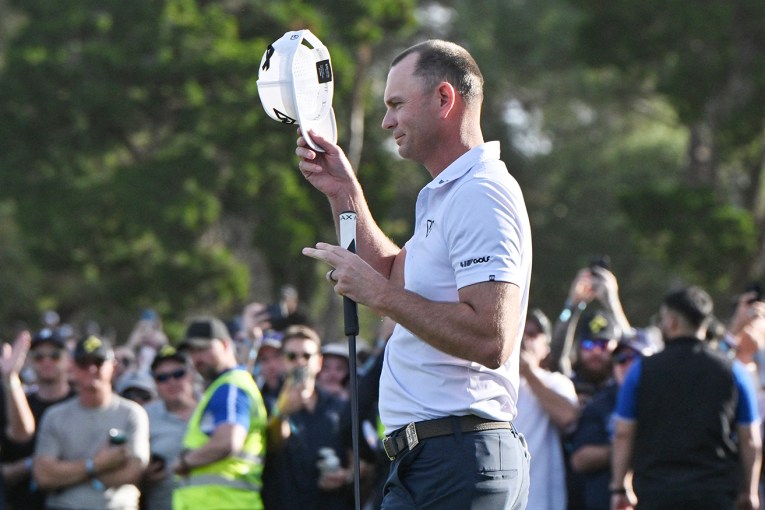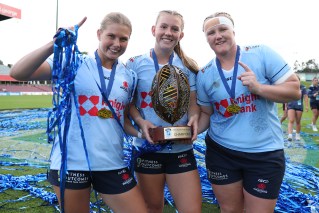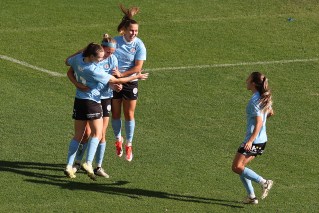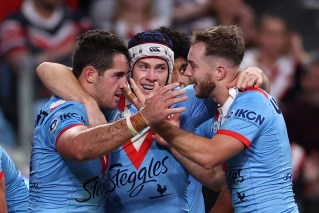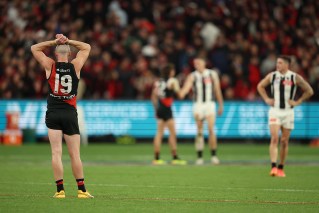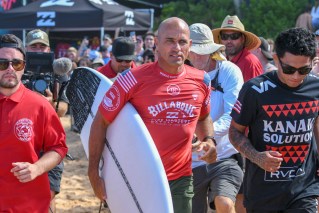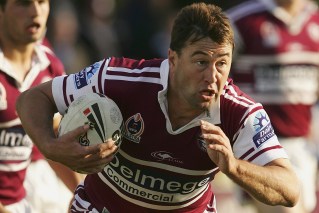Sam Kerr’s anterior cruciate ligament injury has put her Olympic gold medal aspirations in serious doubt, with the Matildas’ star facing between five and nine months on the sidelines.
Kerr injured her ACL during a mid-season training camp with her English club team Chelsea on Monday, ruling her out of the rest of the Women’s Super League season and Australia’s Olympic qualifying campaign.
Dr Joshua Zadro, a physiotherapist and senior research fellow at the University of Sydney, said there are two different methods of treating an injury like Kerr’s.
“One option is to have surgery straight away. This involves reconnecting the ACL either using a graft from a muscle tendon or a synthetic one,” he said.
“There’s a lot of data to show that every month you return before nine months, your risk of re-injuring your ACL doubles.”
The second option, he said, is to rehabilitate the injury without surgery.
“The benefit of this approach is that you can return to sport in around five months if it all goes to plan,” Zadro said.
“There is the risk that your knee won’t cope with not having surgery and then you’ll need to eventually have surgery during that rehab period, and around one in two people will not cope.”
Kerr already raced back from a calf injury at last year’s Women’s World Cup on home soil, starting her first game in the 3-1 loss to England in the semi-finals.
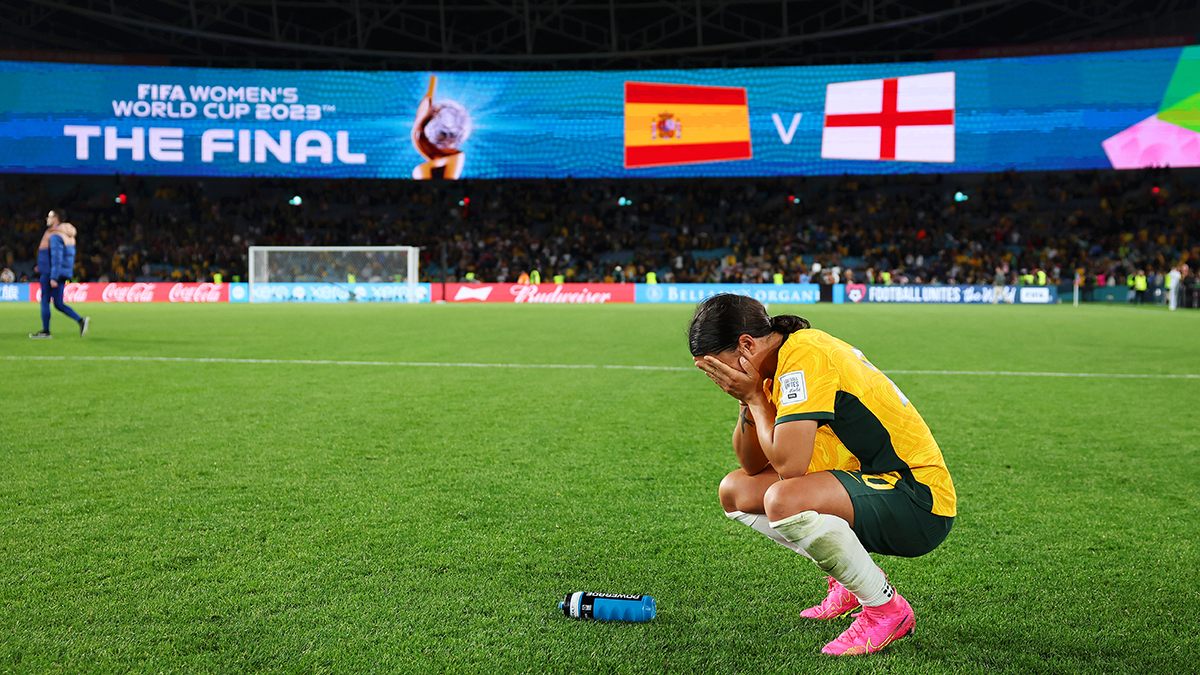
Matildas captain Sam Kerr struggled with injury throughout the 2023 Women’s World Cup. Photo: Getty
Race against time
With the Paris Olympics kicking off in July, Kerr has just over six months to rehabilitate and recover from the injury if she wants to play in the tournament.
Zadro said if Kerr does go for the non-surgical rehabilitation, and her knee can cope without it, then she could potentially be playing in five months, but there are risks regardless of which route is taken.
“An ACL injury is very bad. The outcomes aren’t good, no matter the treatment option you have,” he said.
“Talking elite sports, only 55 per cent of people who rupture their ACL and have surgery return to their pre-injury level of sports performance.
“One in four have a subsequent injury, either the one that was reconstructed or the other side because often people rely on the other side from the injured knee.”
Some elite athletes have returned from the injury within six months – like NFL player Amari Rodgers and the AFL’s Tyson Goldsack – but it comes with an increased risk of further injury.
Women athletes are also more likely than men to injure their ACL, with Zadro estimating it between two and 10 times more likely to occur.
“There’s a lot less research in women generally in the sports medicine field than men,” he said.
“The gap is closing in time, but it is still probably around 75 per cent to 25 per cent in favour of male research.”
Devastating news
Matildas head coach Tony Gustavsson said Kerr will have the full backing of the national team, but her rehabilitation will be overseen by Chelsea’s medical staff with no current time frame for a return.
“Considering how hard Sam has worked over the past six months to return to play, this news is a devastating blow for everyone,” Gustavsson said.
“With her ability to lead by example, Sam’s guidance and influence on the team is significant and, as a result, this will be an incredible loss for the national team.”
She will also miss Chelsea’s UEFA Champions League campaign, which the club was hoping to win after finishing runners-up in the 2020-21 season.
Zadro said if a non-surgical treatment is undertaken, it will be three to six months before Kerr knows if she is one of the people who can handle it.
“In studies, surgery has a very minor benefit of around less than 5 per cent and a lot of researchers and clinicians discard that benefit because it is so small,” he said.
“When you are talking about someone like Sam Kerr, whose career is dependant on maximising the very small benefits, that very small benefit of surgery might in fact be worthwhile for her.”

